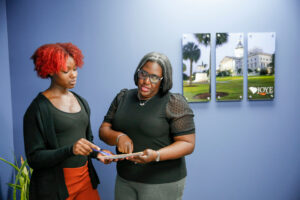
South Carolina teachers have the important responsibility of providing students with the knowledge and critical thinking skills to succeed in the classroom and in the future. The ranks of teachers include preschool teachers , kindergarten teachers, elementary school teachers, middle school teachers, secondary school teachers, special education teachers and instructors and professors at community colleges, universities and technical schools.
While teaching is not generally considered a hazardous job, teachers are at risk of suffering injuries while at work and are entitled to benefits when that happens. According to the Occupational Safety and Health Administration (OSHA), approximately 40,000 teachers sustain some type of injury each year. Elementary and secondary school teachers are at the highest risk. Injuries that teachers suffer can severely impair their ability to function in the classroom.
If you are a teacher in South Carolina and are having difficulty obtaining workers’ compensation benefits after a classroom injury or work-related injury, contact our experienced workers’ compensation lawyers at Joye Law Firm. Under South Carolina law, a teacher who is injured on the job and out of work is entitled to medical care and partial reimbursement of lost wages. South Carolina workers’ compensation eligibility rules are complex. Our South Carolina workers’ compensation attorneys can help you gather evidence to prove that your injury was work-related and covered by the workers’ compensation system.
Call (888) 324-3100 today to schedule a free and confidential evaluation of your claim.

Workers’ Compensation benefits available to S.C. Teachers
At Joye Law Firm, we understand that a workplace injury can cause great physical, emotional, and financial difficulty to teachers. Our attorneys are committed to helping teachers with their workers’ compensation claims.
South Carolina workers’ compensation provides benefits to cover:
- Medical care
- A portion of lost wages
- Partial disability
- Total disability
- Disfigurement, physical impairment, and loss of limbs
- Reimbursement for mileage costs to see doctor or pick up prescription drugs
- Death benefits
When calculating your average weekly wage for the purposes of disability payments, it is important for the workers’ comp administrator to use the correct formula to compute the benefits. Most teachers in South Carolina are hired to work 38 weeks rather than 52 weeks. Therefore, a teacher’s average weekly wages should be determined by taking the annual salary and dividing it by 38 rather than 52. That can make a big difference in the number of weekly benefits you receive while out of work.
When Joye Law Firm handles your workers’ comp claim, you can rest assured that you are working with attorneys with a detailed knowledge of South Carolina workers’ compensation law. Our dedicated attorneys will be committed to your case every step of the way.
We will do everything we can to see that you get you the benefits you deserve as you recover from your injuries.











